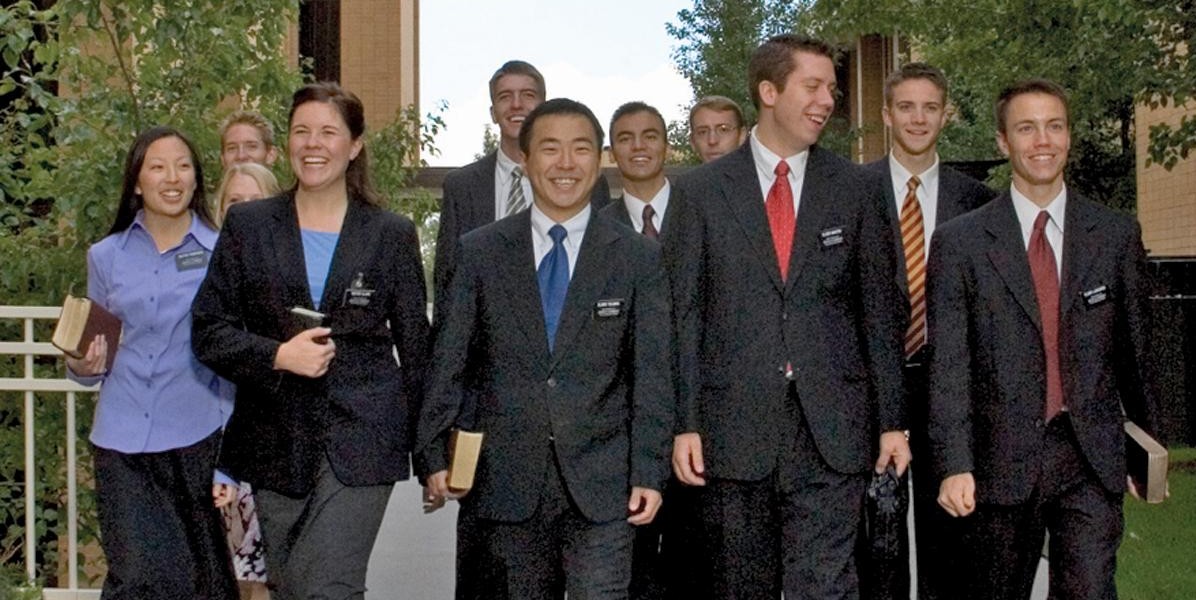 |
| This kid has some serious questions. So did I. Photo credit. |
Growing up as a gay Mormon can be confusing for many
obvious reasons, not least of which is the challenge of coming to terms with a
theology that hasn’t set a very clear place for you at the table. My youth was
certainly confusing. This confusion led to a lot of questions. Though I had
felt real and powerful spiritual experiences in my childhood and adolescence
which contributed to my growing testimony, I still had questions about my
sexuality buried deep-down. Information published by the church and
church-related organizations about homosexuality was inconsistent and
unhelpful. Instead of finding the answers I craved, I found more questions. Did
God make me this way, or did some unconscious action in my childhood shape my
sexual orientation. Could God change me? Would God change me? Was my faith
strong enough to earn such a miracle? What unresolved sin was impeding God’s
intervention on my behalf? This led to more questions. Did the atonement cover
me? Did I truly know how to repent? Did God even love me, or did my sexuality
disqualify me from feeling his love and approbation? As I got older and began
to question the information I had previously read about homosexuality, my
questions changed yet again. How could church leaders be called and inspired of
God if what they taught about the origin and changeability of homosexuality was
so incongruous with my own experiences and those of my gay Mormon
acquaintances? If church leaders were wrong on that, what other mistakes had
they made? If church leaders were occasionally wrong, was the church even true?
Was God real?
I don’t mean to be melodramatic or self-pitying. I also
realize that I’m not charting any new or profound territory in sharing the
questions that harried me in my youth and young adulthood; these are extremely
common questions that most LGBTQ Mormons and many, many straight Mormons ask. They
have been written about and explored extensively. Nevertheless, these questions
largely defined my adolescent spiritual life. Thankfully, I was blessed to grow
up in a family and a ward that gave me the tools to work through crises of
faith with my testimony intact. I have since found satisfying and comforting
answers to almost all of those questions. I am happy with my bisexual identity
and I no longer feel that my orientation represents any kind of unworthiness or
shortcoming. I believe that God loves me and I also believe that the church is
true. I was able to serve my mission with surprisingly little cognitive
dissonance. I’m grateful for that.
The point is, recently I have spoken with several friends
who, for a variety of reasons, chose not to serve missions. One of the common
concerns for them was that they felt they couldn’t serve as a missionary for
and bear testimony of a church they only partially believed in. They felt that their
uncertainties and questions about certain aspects of church doctrine and policy
would color the rest of their missionary work a shade of insincere. Their
individual situations and perspectives of course are much more nuanced that
that, but that sums up a common theme of their decision-making processes.
I fully recognize that for many LGBTQ Mormons, there are
many excellent reasons not to serve besides these kinds of faith questions. For
many, choosing not to serve is the best option for their health and happiness.
That choice is just as legitimate as choosing to go on a mission. But for those
who face these questions yet still want to serve, or those who are grappling
with these questions while in the field, I want to offer a few words of
encouragement.
 |
| Missionaries are awesome, but they don't know everything. Photo credit. |
You don’t have to have a perfect, shiny testimony to be a
good missionary. I would even venture to say that you can disagree with and
question some things that the church teaches and still be a powerful
missionary. This may seem a surprising claim to some readers, but take a moment
to think about it. Do the run-of-the-mill missionaries serving in your ward
know everything? Certainly not. Do they have experience-based testimonies of
everything the church teaches? Of course not. They teach about the blessings of
tithing, but few young missionaries have had the experience of working to
support a family and make ends meet and still exercising the faith to pay that
ten percent when things are tight. They teach about enduring to the end, but
the 18, 19, and 20 year-olds knocking on doors in your town are just at the
beginning of their lives. No missionary has a finished testimony. No missionary
understands everything.
Having
questions or doubts should not discourage a future missionary who otherwise
wants to serve. The ninth Article of Faith declares that God “will yet reveal
many great and important things pertaining to the Kingdom of God.” Current
church teachings do not provide answers to many of the profound questions that
LGBTQ saints (and missionaries) face, and I believe that questioning and
eagerly awaiting future revelation is a perfectly acceptable part of anyone’s
faith journey. It’s part of our doctrine and history. Furthermore, Doctrine and
Covenants 4 makes it clear that “if ye have desires to serve God ye are called
to the work” (verse 3). This statement is not qualified by any disclaimer
excluding those who question. Most importantly, the work to which we are called
is currently defined by a very simple purpose, that missionaries the world over
recite every week, if not every day:
Invite others to come unto
Christ by helping them receive the restored gospel through faith in Jesus
Christ and His Atonement, repentance, baptism, receiving the gift of the Holy
Ghost, and enduring to the end.
Preach My Gospel,
Page 1
 |
| Your purpose is the doctrine of Christ. Photo credit. |
Take a second to ponder this charge. It’s simple. It’s
beautiful. And it leaves room for a whole lot of questioning, as long as a
missionary’s testimony is firmly rooted in the doctrine of Christ and the
restoration. Missionary work is about helping people develop faith in Christ
and act on that faith. Missionary work is about serving others in such a way
that they feel the divine love of God. Missionary work is about helping people approach
God and become disciples of Christ who will then go out and love their neighbor
more fully. Questioning does not have to get in the way of this.
So, my dear gay missionaries and future missionaries, do
you have questions, doubts, or hesitations? So did I. The question you must ask
yourself is if you believe that Jesus Christ is your savior and that the
principles of faith, repentance, baptism, and confirmation have helped you get
closer to him. The question you must ask yourself is if you believe that Christ
restored the gospel through Joseph Smith. So ask yourself. Do you believe?
 |
| Go ahead, pray and ask God. Photo credit. |
If you do
believe these things, then hold on to your questions and keep asking them, but
don’t let them stop you from sharing your testimony of the fundamental things
that you do believe, because the world needs the power of your testimony. If
you aren’t sure whether you believe or not, then pray and ask God. Find out for
yourself. Going through this process will only make you a better missionary in
the future if you choose to go. Also, remember that it’s okay not to know right
now. The scriptures are full of stories of people who had questions, who were
unsure, who didn’t have all the answers, but were willing to ask. Joseph Smith
is the best example of this. God loves you
all the more for not knowing but asking anyway; it’s through people like you
that he works miracles.
Once again,
it’s okay to not know everything. I certainly don’t. We must each go through
the process of searching, pondering, and praying to find the truth for
ourselves and understand it as best we can. No one can do it for you. But if it’s
any help, remember that I know that
God loves us—loves you—and that
Christ is our savior. I know that he died for us and that through his sacrifice
we can be cleansed and sanctified. I know that through faith, repentance,
baptism, and receiving the Holy Ghost we can experience joy and feel divine
peace in our lives. I know that God called Joseph Smith as a prophet and that
through him, new doctrine was revealed and the church of Christ was restored. I
still have lots of questions about that church and doctrine and how we fit into
it, but I believe that God has set a place for us at the table of the church,
and that he wants us in it. This knowledge and testimony of Christ was enough
for me to fulfill my purpose as a missionary; it will be enough for you, too.
 |
| It's because Joseph didn't have all the answers that the gospel was restored in the first place. Photo credit. |









